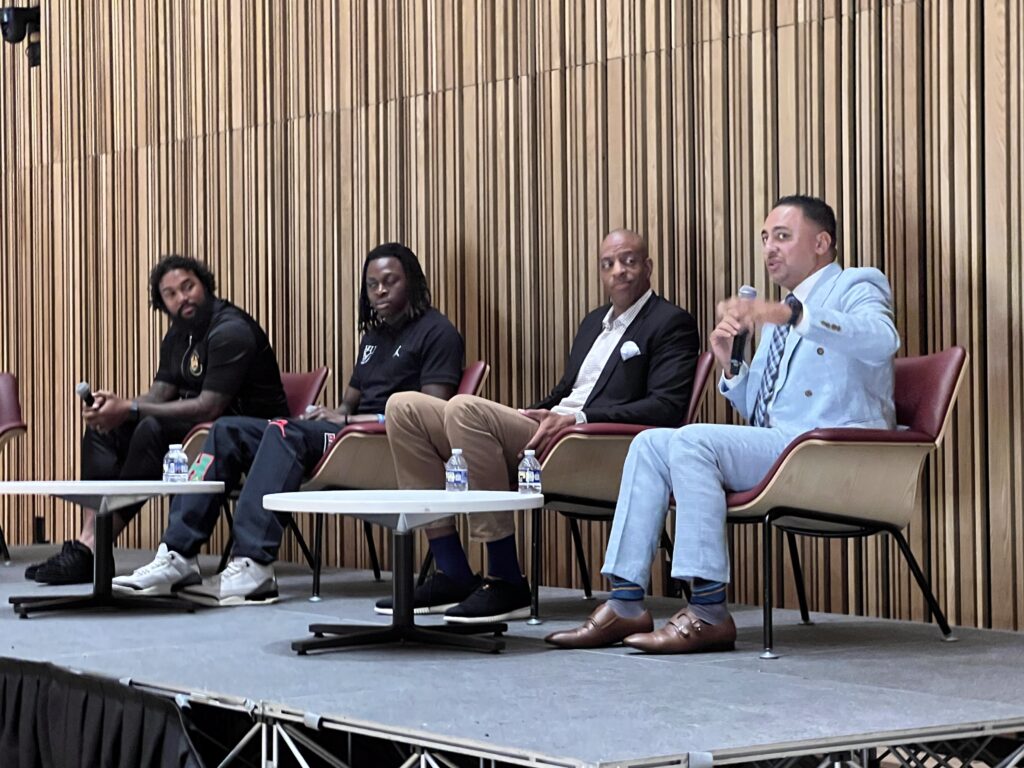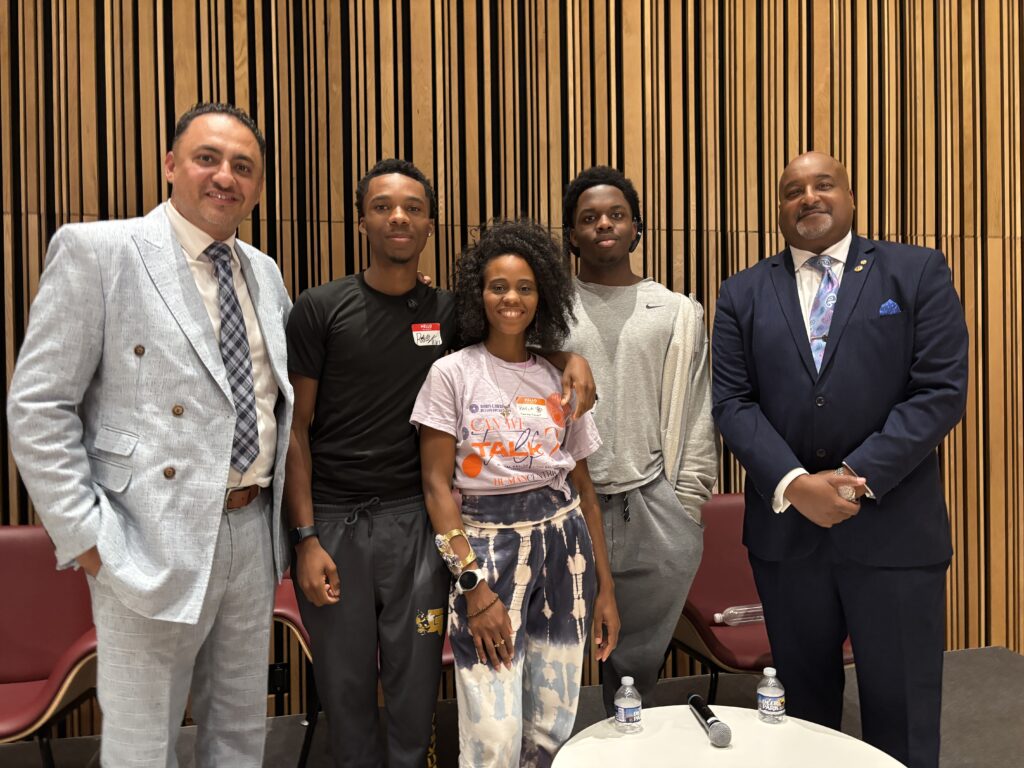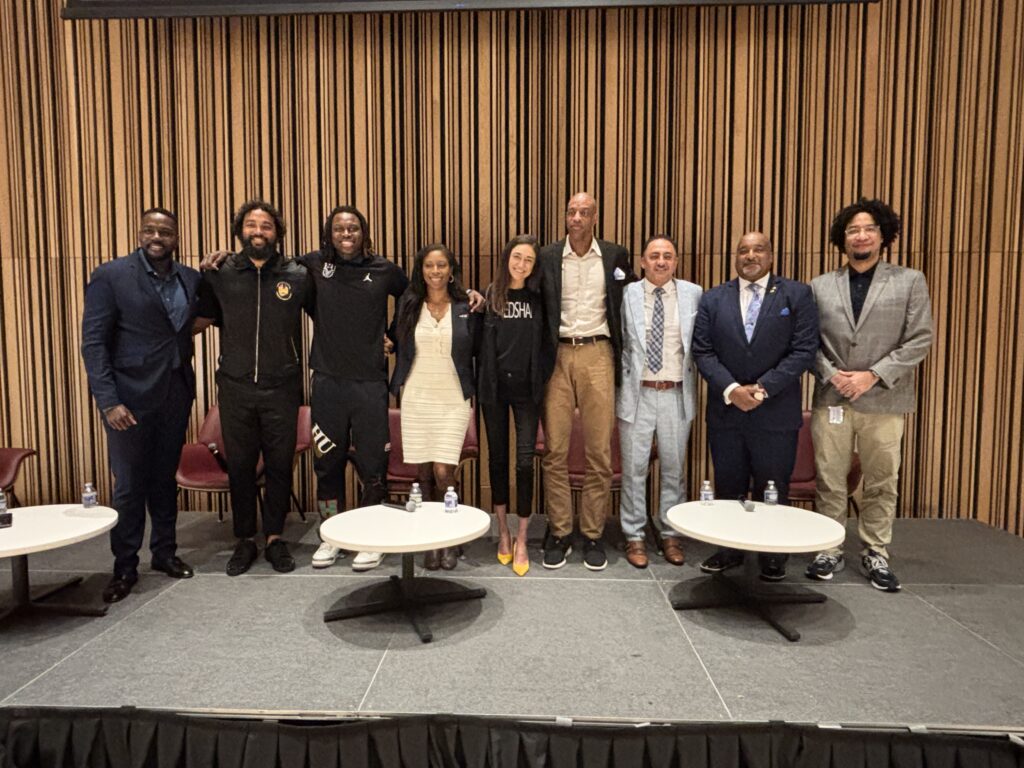For many men, the locker room is a place of toughness, camaraderie, and performance. But what happens when the conversation shifts from game plans to mental health? At the Locker Room Reimagined: Men’s Mental Health & Wellness Forum, hosted by Project Blackbird in partnership with Athletes for Hope (AFH) and the American Psychiatric Association Foundation (APAF), that question took center stage.
A Panel for the Players
Moderated by Stephen Graddick (Fox 5 DC Morning News Anchor), the forum created a rare and powerful space where athletes and professionals spoke openly about pressure, pain, and purpose.
The panel featured:
- Marcus Smith II – Former NFL player, Washington Commanders
- Jerome “Junkyard Dog” Williams – Former NBA player, Chicago Bulls & New York Knicks
- Ose Okojie – Current Howard University basketball player
- Dr. Mena Mirhom – AFH Chief Wellbeing Officer and Sports Psychiatrist
The evening began with remarks from Rawle Andrews, Jr., Esq., Executive Director of APAF, who grounded the conversation in the importance of dismantling stigma and redefining what strength means for men today.
Breaking the Silence
For too long, men, especially male athletes, have been taught to stay silent about their struggles. The forum challenged that narrative head-on, reminding the audience that strength is not the absence of struggle, but the courage to face it.
The conversations were candid, raw, and vulnerable. Athletes shared their own experiences with mental health challenges, creating a ripple effect of honesty and solidarity. Together, they showed that when men open up, they not only heal themselves but also create space for their teammates, families, and communities to heal.
Redefining Strength
Locker Room Reimagined was more than a panel — it was a cultural reset. By reframing vulnerability as strength, the forum pushed back against outdated expectations of masculinity and offered a new model for men: one that embraces openness, connection, and support.
At Athletes for Hope, we believe these conversations are essential. Because when men in sport lead with honesty, it changes the game for everyone watching.
Learn more about AFH’s mental health work.



